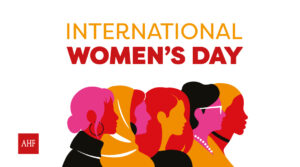The Colombian government is about to authorize the entry of the generic version of dolutegravir, one of the most used and effective drugs in antiretroviral treatment, which controls HIV.
Resolution 881 of 2023 was promoted by the Ministry of Health on June 2 and would allow Colombia to import or manufacture dolutegravir without requesting the permission of the patent holder: the ViiV Healthcare alliance, made up of the pharmaceutical companies GlaxoSmithKline, Pfizer and Shinogi.
The Colombian government seeks to initiate ex officio “the administrative procedure for declaring the existence of reasons of public interest to submit patents for medicines with the active ingredient dolutegravir to compulsory licensing.”
According to the Ministry’s resolution, with the price currently paid for the drug in its commercial version for one person for one month, treatment could be granted to 36 people during the same period if the generic version were purchased.
A transcendental measure
Since Colombia is considered a middle-income country, Viiv excluded it from the Medicines Patent Pool license, a Swiss foundation that did grant it to other nations around the world. This has caused the country to pay a heavy price for dolutegravir, which is recommended for use as first-line treatment for people with HIV, including pregnant women.
For this reason, around 120 civil organizations published a letter of support for the resolution of the Ministry of Health. Among these organizations is Doctors without Borders (MSF), which stated in a statement that the high prices of the drug often prevent people in more vulnerable situations, such as victims of sexual violence, from accessing treatment in a timely manner.
If the resolution is consummated, MSF maintains, it would mean “a major defeat” for the pharmaceutical industry that bases its income on patents, since for at least 20 years they have had a monopoly on the manufacture of their drugs.
Civil organizations urged the Colombian government to go ahead, clarifying that the high prices of HIV treatment “impede the goal of an AIDS-free generation and contribute to preventable suffering and death.” Signatories to the letter include Public Citizen, MSF Access Campaign, Corporation Global Humanitario Progreso Colombia, People’s Vaccine Alliance, AIDS Healthcare Foundation and Partners In Health.
Substantial change
Francisco Viegas, medical innovation policy advisor for MSF’s access campaign, noted that the Colombian government’s commitment to allow generic versions of dolutegravir into the country “reaffirms the belief that people’s lives should take precedence over corporate profits.”
He also commented that MSF has used a dolutegravir-based first-line regimen in its programs in Africa and Asia, and has seen benefits for people with HIV, as “there are fewer side effects and less risk of resistance.”
In addition, since this is one of the treatment schemes recommended by the World Health Organization, it should be available to all people living with HIV, regardless of where they live, Viegas pointed out. However, Colombia, like other middle-income countries, “have difficulties supplying dolutegravir, due to the patent and its high prices,” so a compulsory license that opens up access to more affordable generic versions of dolutegravir would substantially change the situation.
The Colombian government’s initiative is expected to become a significant step to defend the right to health and a victory against the high prices that make it more difficult to eradicate AIDS as a public health problem.
Remember that at AHF Latin America and the Caribbean we work every day to bring HIV services to all people who need them. If you are looking to get a free HIV test, locate our offices in your country and make an appointment now.






